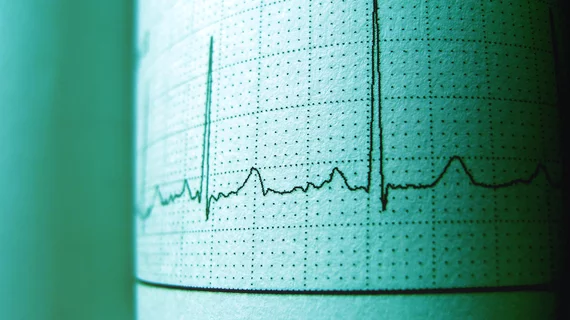COVID-19 linked to elevated risk of life-threatening arrhythmia
Patients who develop severe cases of COVID-19 face a higher six-month risk of developing a life-threatening heart rhythm disorder, according to new research presented at EHRA 2023, the European Society of Cardiology’s scientific congress in Barcelona.
The study's authors used Swedish ICU data to identify COVID-19 patients released between March 2020 and June 2021 who required mechanical ventilation. After matching these patients by age, sex, and district of residence with people in the general population, the researchers then compared new diagnoses of arrhythmias in both groups.
The research uncovered a risk of ventricular tachycardia, which results in the body receiving insufficient oxygenated blood, that was 16 times higher for the severe COVID-19 group than the control group. Specifically, for every 1,000 people in the study, 15.4 people in the COVID-19 group developed ventricular tachycardia compared to just 0.9 people in the control group.
“The actual likelihood of developing ventricular tachycardia or other arrhythmias after severe COVID-19 is low for the individual patient, but much higher than in those without severe infection,” study author Marcus Stahlberg, MD, PhD, of the Karolinska Institute in Stockholm, Sweden, said in an ESC statement about the presentation.
The COVID group was also at significantly higher risk for atrial fibrillation, other tachyarrhythmias and bradycardia/pacemaker implantation.
The authors noted that raising awareness of these risks can help encourage at-risk patients to be on the lookout for symptoms and to seek diagnosis and treatment accordingly.
“COVID-19 patients who need mechanical ventilation often have other conditions and adding a heart rhythm disorder may lead to worsened health," Stahlberg said. "These patients should seek medical attention if they develop palpitations or irregular heartbeats after hospital discharge so they can be evaluated for possible arrhythmias.”
View the full ESC statement here.
